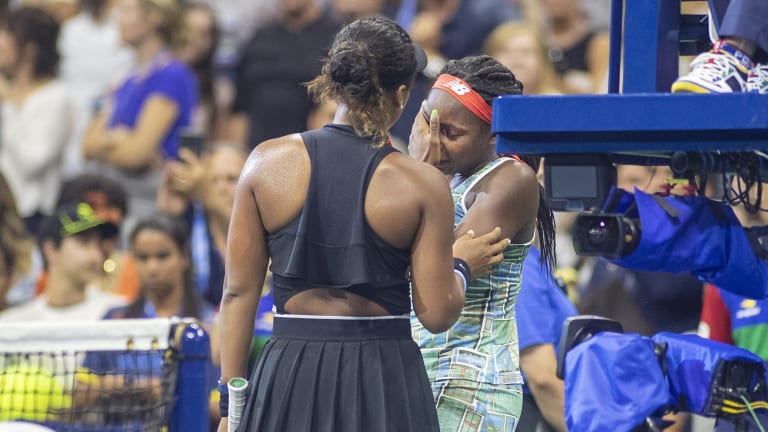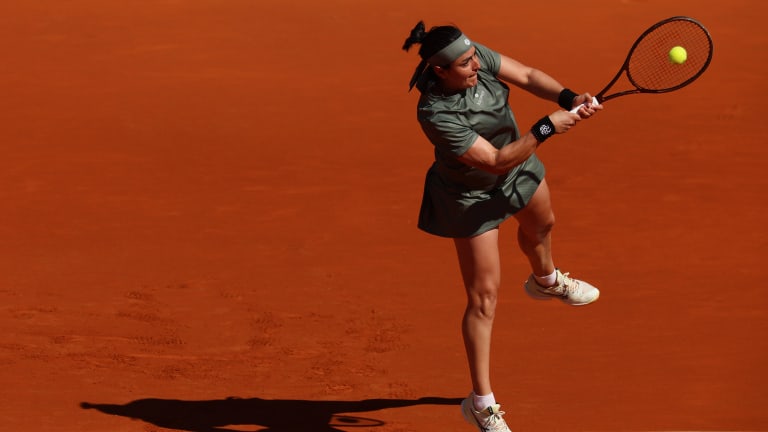They Said What?
A Class Act, Easily Ignored: Kudos to Ons Jabeur
By May 06, 2024They Said What?
'Big Brother' is watching ... tennis: Many eyes, in many ways, are on the sport in 2025
By Feb 13, 2025They Said What?
“There’s nothing wrong with not being Novak”: Sloane Stephens gets candid on Tennis Insider Club podcast
By Oct 21, 2024They Said What?
"New Heights" with Stefanos Tsitsipas
By May 15, 2024They Said What?
Luca Nardi defeats Novak Djokovic: Teachable moments from a stunning upset
By Mar 12, 2024They Said What?
Are we witnessing a new Daniil Medvedev?
By Jan 25, 2024They Said What?
Dayana Yastremska's racquet is doing the talking at the Australian Open
By Jan 22, 2024They Said What?
Deciding when to retire is a unique case for tennis players. Just ask Andy Murray
By Jan 18, 2024They Said What?
Roger Federer may not be tennis' GOAT, but as Rafael Nadal articulated, he's a 1 of 1
By Jan 06, 2024They Said What?
The lingering debate on tennis balls used at ATP and WTA tournaments is a ball of confusion
By Oct 08, 2023A Class Act, Easily Ignored: Kudos to Ons Jabeur
There are plenty of reminders of upright behavior in tennis—if you care to look for them.
Published May 06, 2024
Advertising
Advertising
Advertising

It’s impossible to forget the way Naomi Osaka consoled 15-year old Coco Gauff at the 2019 US Open after allowing the rising star just three games in a blowout.
© Corbis via Getty Images
Advertising

In turning the other cheek, Jabeur also reminded everyone—most of all her peers—that actions and words fired in the heat of battle don’t necessarily demand a nuclear response.
© Getty Images